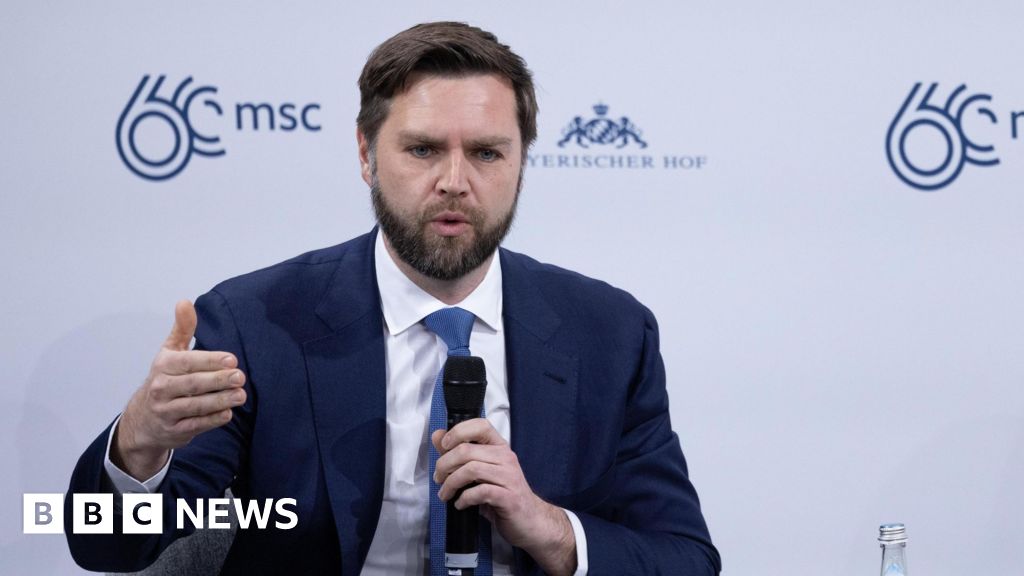He also said that he believed most of the Republican party supported Ukraine and its people.
Mr Zelensky and Mr Trump also have a common friend in Boris Johnson, the former UK prime minister, who has consistently championed continued aid for Ukraine and recently met the former president at the Republican National Convention.
Following the meeting, Mr Johnson posted on X, external that he had “no doubt that [Mr Trump] will be strong and decisive in supporting that country and defending democracy”.
But even if that sentiment is true, it might not apply to Mr Vance, who, days before the full-scale invasion, told a podcast he “doesn’t really care what happens in Ukraine, one way or the other”. He also played a key role in delaying a $60bn military aid package from Washington.
“We need to try and convince him otherwise,” says Yevhen Mahda, the Executive Director of the Institute of World Policy think tank in Kyiv.
“A fact we can use is that he fought in Iraq, therefore he should be invited to Ukraine so he can see with his own eyes what is happening and how American money is spent.”
The question for Kyiv will be to what extent he can influence the decisions of his new boss.
Yevhen Mahda agrees that Trump’s unpredictability could be a problem for Kyiv in the run-up to the US presidential election.
The biggest supporter of the Trump-Vance ticket in the European Union is Hungary’s Viktor Orban who returned recently from a visit to see the Republican candidate, after visiting Mr Zelensky and President Putin, with whom he maintains close ties.
In a letter to EU leaders, Mr Orban said a victorious Donald Trump would not even wait to be inaugurated as president before quickly demanding peace talks between Russia and Ukraine.

